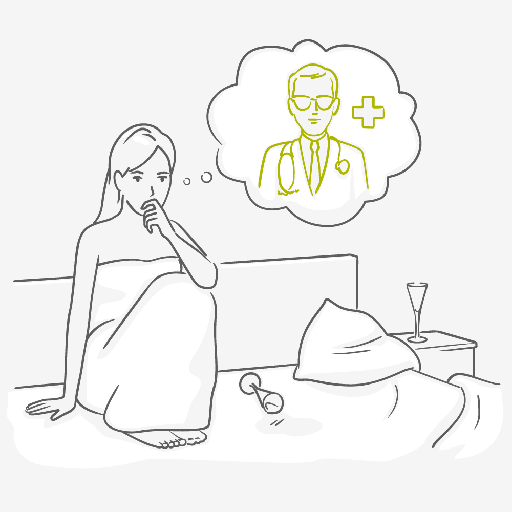EMERGENCY CONTRACEPTION PILL FOR BIRTH CONTROL TO THE RESCUE
Also dubbed the ‘morning after’ pill, emergency contraceptives provide a second chance to prevent pregnancy after having unprotected sex. An emergency pill typically contains hormones that are similar to oral contraceptives, but with higher dosages. Emergency contraception is a back-up method for genuine emergencies, like for that one time the condom broke, so they should never be the contraception that you choose to use regularly.
How Emergency Contraceptive Pill Works in Birth Control?
Emergency contraception is one of the effective contraception methods available in Malaysia. Emergency pregnancy pill is usually taken after unprotected sex or a failed contraception. For example, taking an emergency contraception pill due to your split condom or when you missed a pill.
Who is Suitable to Take Emergency Contraceptive Pill to Avoid Pregnancy
Emergency pills to prevent pregnancy can be used by almost every woman. Emergency birth control pills are also suitable for women who cannot use hormonal contraception. This pill can also be taken by girls that are under the age of 16 years old. However, it is not suitable for some women with severe asthma who should take medications that may interact with this pill.
When Should You Take Emergency Oral Pregnancy Pill?
The emergency pill should be taken if you forget to take your oral contraceptive pills. Other than that, you must take this pill if you did not use your other contraception methods, like the contraceptive patch and contraceptive ring, correctly. It also should be taken if you are late from taking your contraceptive implant or contraceptive injection.
However, it must be reminded that frequent consumption of emergency pills has long-term side effects on female hormones, such as menstrual irregularities. Because of this, it is better to take OCP pills if you want to prevent pregnancy. You can consider taking the emergency pill only in unavoidable situations.


HOW TO TAKE THE EMERGENCY PILL TO PREVENT PREGNANCY
For best results, you should take the emergency pill as soon as possible after unprotected sex. Ideally you should take it up to 12 hours after you’ve had unprotected sex but if it’s taken more than 24 hours after unprotected sex, it’s already much less effective. After using emergency contraception, you should use another form of contraception for the rest of your cycle to protect yourself from unplanned pregnancy. Don’t forget to get yourself tested for STIs, too. Unprotected sex exposes you to STIs as well as unplanned pregnancy.
PROS & CONS OF EMERGENCY CONTRACEPTIVE PILL
- It helps prevent pregnancy after birth control failure or unprotected sex
- Most effective only when used within 24 hours after unprotected sex
- It contains a high dose of hormones (>10 times higher compared to the pill) in one pill
- Using it repeatedly can interrupt the natural menstrual cycle
- It may cause headache, nausea, vomiting, abdominal pain, menstrual pain, tiredness, dizziness, fatigue
- Does not protect against HIV infection (AIDS) and other sexually transmitted infections (STIs)
FREQUENTLY ASKED QUESTIONS
Emergency contraception (morning after pill) is most effective when taken within 12-24 hours after unprotected sex. Efficacy changes over time: while it’s 95% effective within the first 24 hours after unprotected sex, that number drops to 58% when the pill is taken within 49-72 hours. For the best chance for it to work, you should take the emergency pill as soon as possible.
Yes, you can use the emergency pill if something has gone wrong with your usual form of contraception, for example a forgotten pill (only if the intake is more than 48 hours ago) or split condom.
Women who take ECPs should understand that they could become pregnant the next time they have sex unless they begin to use another method of contraception at once. Because ECPs delay ovulation in some women, she may be most fertile soon after taking ECPs. If she wants ongoing protection from pregnancy, she must start using another contraceptive method at once.
Repeated administration within a menstrual cycle is not advisable because of the possibility of disturbance of the cycle and a very high hormone dose. The emergency pill (morning after pill) should not be relied on as a regular form of contraception, and it is not as effective as other forms of hormonal contraception specifically made for regular use - it is only intended as a back-up.
No. Emergency contraceptives (morning after pill) do not work if a woman is already pregnant. When taken before a woman has ovulated, emergency pills prevent the release of an egg from the ovary or delay its release by 5 to 7 days. By then, any sperm in the woman's reproductive tract will have died, since sperm can survive there for only about 6 days.
No. Nearly all other contraceptive methods are more effective in preventing pregnancy. A woman who uses emergency contraceptives (ECPs) regularly for contraception is more likely to have an unintended pregnancy than a woman who uses another contraceptive regularly. Still, women using other methods of contraception should know about ECPs and how to obtain them if needed—for example, if a condom breaks or a woman misses 3 or more combined oral contraceptive pills.
Emergency contraception (the morning after pill) mainly prevents pregnancy by stopping or delaying the ovaries from releasing an egg. If you’ve ovulated before taking the morning after pill, it won’t stop an egg meeting a sperm to create a pregnancy. It’s not a reliable everyday protection.
The efficacy of emergency contraception (the morning after pill) changes over time: while it’s 95% effective within the first 24 hours after unprotected sex, that number drops to 58% when the pill is taken within 49-72 hours.
Where to get emergency contraception (the morning after pill) depends on the country you live in. Some sell it over the counter without a prescription, others demand a doctor’s visit first. Talk to your health care provider or pharmacy to find out.




















